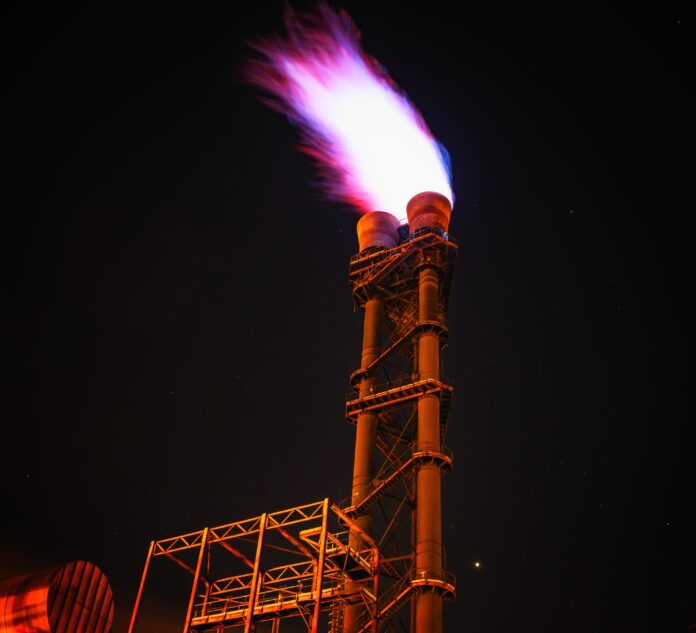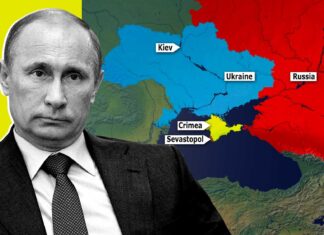The Ukraine war reveals the difficulties of Germany and the European Union’s dependence on Russian energy. Germany is facing even more difficulties, especially with regard to natural gas imports. Here’s an overview of this dilemma.
How much energy does Germany import from Russia?
Russia is Germany’s most important energy supplier. In 2020, the Federal Republic of Germany imported 56.3 billion cubic meters of natural gas from Russia, which is equivalent to 55% of the country’s total gas imports. According to the German Federal Ministry of Economy, natural gas imports from Russia in 2021 will remain almost the same. In addition, Germany imported about 28 million tons of crude oil from Russia in 2020, which is one third of the country’s crude oil imports.
According to current figures from the Federal Statistical Office, this will also affect German seaports if this amount of energy imports is stopped. Russia was the most important trading partner of German ports with a total of 24.1 million tons of cargo from January to November 2021. Fossil fuels make up 10.8 million tonnes, equivalent to 37.7% of all fuels imported through German seaports.
To what extent is Russia dependent on energy exports?
According to the International Energy Agency, Russia is in dire need of revenue from the sale of raw materials. In January of this year, about 45% of the country’s budget was financed through taxes and tariffs on oil and gas exports.
In terms of natural gas sales alone, about $ 400 million (€ 368 million) a day is transferred from the European Union to Russia. Given the high price of gas in the current situation, it is likely that Russia’s income will increase in this regard. Russia’s total revenue from crude oil exports and crude oil production is about $ 700 million a day.
Will Germany be able to reduce its dependence on Russian energy in the short term?
According to sources in the German Federal Presidency, the energy import sector from Russia is not currently consciously subject to sanctions. “There is currently no guarantee and no other way to supply Europe with energy in the heating, transport, electricity and industrial sectors,” said German Social Democrat Chancellor Olaf Schultz.
According to the German chancellor, the country, along with its Western partners, is “intensely” trying to find alternatives to Russian energy, but this will not happen “overnight.”
Can Europe and Germany give up on Russian energy?
According to Claudia Comfort, an energy expert at the German Institute for Economic Research, at least some alternatives to Russian coal and crude oil are currently being conceived. The International Atomic Energy Agency (IAEA) points to other oil exporters, including Saudi Arabia, the United Arab Emirates, and the growing shale oil sector in the United States.
But according to Comfort, the situation is more difficult with regard to natural gas imports to Germany; Because Germany has a greater need and dependence, especially in this sector, and there are only a few options to supply natural gas. Comfort said more natural gas could be imported through the Norwegian and Azerbaijani gas pipelines. But the additional import capacity is very limited.
Can Germany and the EU use an alternative to liquefied natural gas?
Another alternative to gas imported from Russia is liquefied natural gas (LNG). According to BP Energy figures, Europe imported approximately 115 billion cubic meters of liquefied natural gas from Qatar and the United States in 2020. In addition, another 17.1 billion cubic meters of this gas has been exported from Russia to Europe.
But Germany has a problem with that. Special liquefied ship and marine terminals are needed to deliver and process liquefied natural gas, which Germany does not have. So far, German liquefied natural gas has been imported via the Zebroge terminal in Belgium, the French Dunkirk terminal and the Dutch terminals.
Due to the war in Ukraine, German Chancellor Olaf Schultz has issued a federal statement calling for speeding up the construction and construction of two liquefied natural gas terminals in the port areas of Brunsbüttel and Wilhelms-Hoffen. There is also talk of a terminal in Stadt, Lower Saxony, Germany. There are currently a total of 37 liquefied natural gas terminals across Europe, of which 26 are in EU member states.

























































